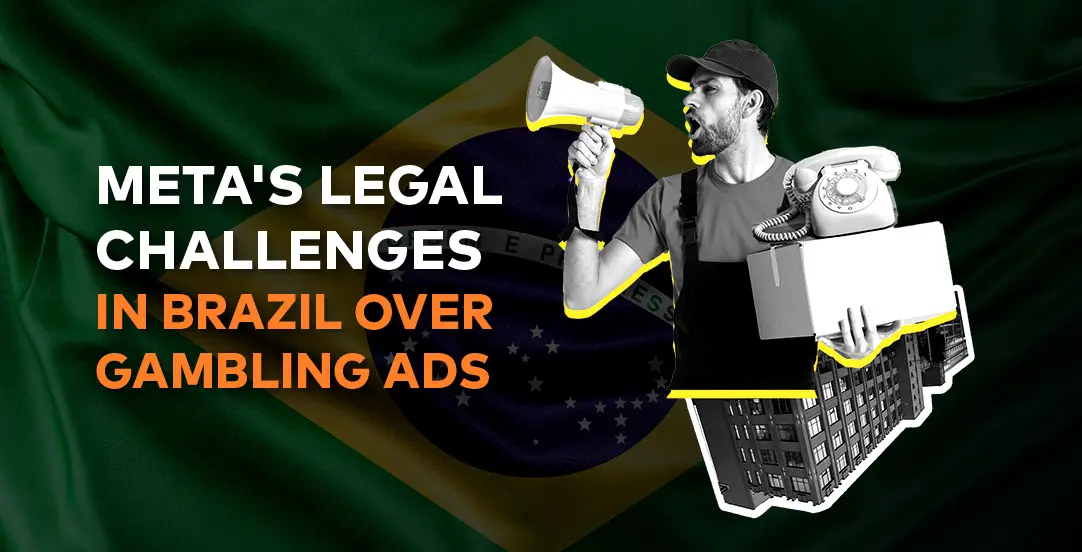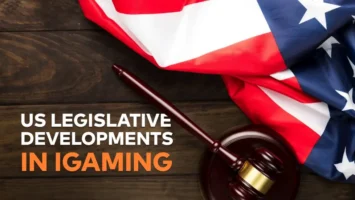Meta faces legal test in Brazil over gambling ads and iGaming regulation

In a dramatic move that could shape the future of digital advertising in the South American iGaming sector, Brazil’s Attorney General’s Office (AGU) has fired a sharp warning at one of the world’s largest social media companies. Meta’s legal challenges in Brazil over gambling ads have made headlines after authorities discovered a tide of illegal gambling promotions sweeping across Facebook and Instagram. This is no minor dispute: it is a revealing microcosm of how global tech giants, regulators, and the online gaming industry must continually adapt to new realities.
How Meta landed in legal hot water in Brazil
Meta, the tech powerhouse behind Facebook and Instagram, finds itself at the center of Brazil’s intensifying drive for a more regulated iGaming market. After an extensive probe into its ad library, Brazilian authorities unearthed hundreds of ads promoting gambling sites that were not licensed by the national Ministry of Finance. According to the AGU, this is a breach of local law that could be entangled with serious concerns including tax evasion and money laundering.
The issue was so pressing that the AGU issued an extrajudicial notice, calling on Meta to remove all illegal gambling ads within 48 hours. The message was clear: failing to do so could leave the company open to further legal risk and public scrutiny. Importantly, the notice landed via the National Prosecutor’s Office of the Union for the Defense of Democracy, underlining the seriousness with which Brazil is treating the matter.
Brazilian gambling law and digital platforms
Brazil’s gambling framework is designed to tightly control who can operate and advertise within the country. A telling sign of an authorised operator is that their web address ends in “.bet.br”—anything else is considered suspect by authorities. Promotion by unlicensed operators is unequivocally illegal, and the current legal environment is less forgiving than ever.
Adding fuel to the fire, recent changes in the interpretation of Brazil’s internet laws have raised the bar for tech platforms. A Supreme Federal Court (STF) decision on Article 19 of the Brazilian Civil Rights Framework for the Internet found that platforms are now presumed liable for illegal content, specifically paid ads, unless they can quickly and diligently remove such material.
The AGU’s case against Meta in detail
What stands out in this episode is how Brazil’s AGU framed the issue. In its notice to Meta, the AGU stated:
This is, therefore, a clearly illegal activity (given that these profiles are not authorised by the Ministry of Finance) – which may also be linked to tax evasion, money laundering, crimes against consumer relations, fraud and other illegal practices.
Brazilian authorities are not just concerned with unregulated betting they are deeply worried that these ads may facilitate broader financial crimes and consumer harm. From an industry perspective, this broad brush approach raises the stakes for compliance officers, marketing affiliates, and tech companies alike.
Meta’s global challenges with illegal gambling ads
Meta’s struggle in Brazil is not unique. Earlier in the year, the company was scrutinized by authorities in India, where it failed to answer questions related to digital ads promoting unauthorized gambling platforms as part of a money laundering probe. Meanwhile, in the Philippines, Meta acted more decisively, purging the Facebook pages of high-profile influencers caught shilling for illegal gambling operators.
This recurring theme highlights a core challenge: global platforms sometimes struggle to adapt to local regulatory landscapes. For Brazil, the AGU argues that Meta’s process for screening gambling ads, despite recent updates, still leaves much to be desired. As new rules take hold, tech firms are under increasing pressure to not just update policies, but to enforce them rigorously.
The view from licensed operators and market integrity
This crackdown has notable implications for legal operators trying to build credibility in Brazil’s evolving gambling sector. Licensed firms already battling negative publicity and lobbying against further advertising restrictions may welcome the AGU’s stance against unlicensed ads. By pressuring Meta to remove illegal adverts, regulators indirectly aid compliance-minded operators seeking a cleaner, safer marketplace.
However, this also comes at a delicate time. In May, Brazil’s Senate approved sweeping new ad restrictions for gambling, including harsh curbs on celebrity endorsements, bans on daytime TV and streaming ads, and strict time slots for radio marketing. Many licensed operators worry that restrictive policies could confuse consumers and push more activity into the black market, diluting the positive impact of combating illegal ads on major digital platforms.
Why this moment matters for iGaming and digital advertising
The Brazilian AGU’s confrontation with Meta is about more than just one social media company. It signals a broader shift in how governments approach digital platforms, compliance, and the iGaming ecosystem. Key takeaways include:
- Brazilian authorities are adapting their legal and regulatory toolkits to cover the fast-evolving online gaming landscape,
- Tech giants like Meta will increasingly be expected to proactively police illegal or unauthorized gambling ads,
- This development sets a precedent that could quickly spread to other jurisdictions facing similar concerns about unlicensed online gambling and advertising practices.
For industry professionals and bettors alike, the story is still unfolding. Will Meta be able to clean up its ad ecosystem in time, demonstrating “diligence” under the law? Will stricter marketing rules drive more traffic to black market sites, or will they achieve the intended effect of protecting consumers and clarifying the legal landscape?
Looking forward
The iGaming industry in Brazil is on the cusp of major change, propelled by regulatory activism and legal scrutiny of digital marketing. The pressure on Meta reflects a global trend of tightening expectations for technology companies operating at the crossroads of entertainment, commerce, and consumer protection.
For now, all eyes are on Meta’s response and Brazil’s evolving enforcement strategies. As the country seeks to balance innovation, competition, and integrity in the iGaming market, its decisions will almost certainly influence regulatory debates throughout Latin America and beyond.





















